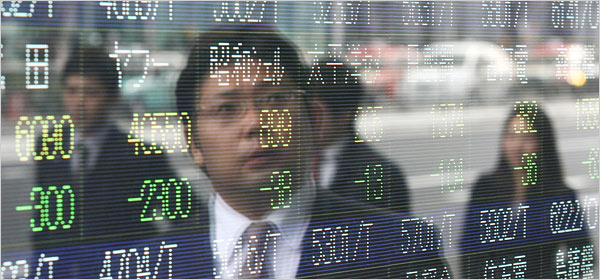
The Asian and Pacific Rim markets responded to this morning’s early missile attacks on U.S. forces in Iraq from Iran by correcting sharply lower. As of right now, no injuries or casualties have been reported.
In Japan, the Asian benchmark, the Nikkei 225, quickly fell over two percent after the news then retraced some losses. The Nikkei was last trading down 1.33 percent. The Broader Topix index, in Tokyo, was down 1.25 percent.
Japan’s Prime Minister Shinzo Abe will be cancelling a scheduled trip, this coming weekend, to the Middle East.
Across the Korean Strait, in Seoul South Korea, the headline Kospi composite index was down 0.83 percent after falling over 1.2 percent earlier in the session.
Elsewhere in the Asian and Pacific Rim, the Australian ASX 200 was down 0.32 percent by the afternoon hours.
In Hong Kong, the Hang Seng index was down 0.85 percent and on the mainland in China, the benchmark equity bourses were in the red, as well.
The Shanghai composite was down 0.57 percent and the smaller Shenzhen composite lost 0.11 percent. The Shenzhen component retraced early losses to trade around the flat line.
Asian Traders Monitor the ME after an Iranian Missile Attack on U.S. Military Forces
Worried traders sent capital into safe havens after the Iranian missile attack on U.S. led forces in Iraq early Wednesday morning.
This response, from Iran, comes after the funeral of a top Iranian general who was killed, last week, in a U.S, drone attack. Tensions in the Middle East have spiked higher.
The United States has since confirmed the attack and President Donald Trump had been briefed. The situation is being monitored.
In trade related headlines, there are reports that China will not increase its annual import quotas for corn, wheat and rice. This could problem for the “phase one trade agreement” that is expected to be signed on January 15.
 Forex Marketz Daily Forex News – Fully Markets Update
Forex Marketz Daily Forex News – Fully Markets Update



